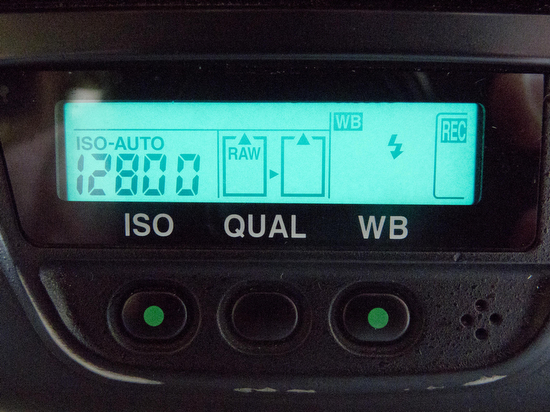 |
| The ISO setting on D3S lets me choose ISO 12,800 or higher. Not only is it a choice the quality of image is as good as ISO 400 was in the film days for my work. |
I think the greatest game changer with digital photography has been the ISO. There are many ways this has impacted photography.
Here is a list of some of the things I have noticed it changed for me:
- Can change ISO from photo to photo.
- Before you had to change film to change your ISO in the middle of a roll of film
- In today’s cameras like the Nikon D3S the high ISO is higher than it ever was with film
- Color film high ISO was around ISO 800
- Black and White high ISO was around 3,200
- The 12,800 ISO setting in the Nikon D3S gives me as good of results with noise as film’s ISO 400 did and maybe better.
- With film we talk about grain and today while similar effect it is different and we talk about noise
- AUTO ISO – WOW this really changed my life.
 |
| Nikon D3S – ISO 11,400 – F/5.6 – 1/100 – Nikkor 28-300mm |
AUTO ISO
Since the quality of the ISO really has little impact on the quality of the image AS COMPARED to the major quality shift with film, I have my camera normally set to AUTO ISO most of the time.
I will go in to the menu and change this AUTO ISO settings.
 |
| Nikon D3S menu ISO settings |
Sports
One of the settings I change in the AUTO ISO is the minimum shutter speed. When I am shooting sports I prefer shutter speeds of 1/2000. So I will set this and then shoot in Aperture mode.
The camera will override the shutter speed of 1/2000 and go lower if the ISO gets maxed out at ISO 12,800. If you prefer not to shoot at such a high ISO then you can choose something lower like ISO 5,000 and then shutter speed would drop from 1/2000 much sooner than it would for me.
This AUTO ISO setting isn’t taking creativity away, but rather I have set the tolerances that I would have been having to stop and think about to do anyway. This lets me get the moment sharp and in focus, which is critical in sports.
Flourescent and Sodium Vapor
When shooting under Florescent and Sodium Vapor I normally set the minimum shutter speed to 1/100. You see both of these type of lights are really like flashes. They are flashing about 60 times a second and if you shoot faster than 1/100 you will get color shifts due to catching the light in between cycles.
 |
| Nikon D3 – ISO 6400 – f/2.8 – 1/100 and Sigma 120-300mm f/2.8 |
Flash
I have discovered a couple of things about using flash with a high ISO.
- With TTL flash and high ISO I can easily balance these so I can shoot with my 85mm f/1.4 for example.
- When you use flash and it is illuminating most of the scene the dynamic range of the photo is compressed. What this means is most of the time the f-stop range of exposure from the highlight to the shadow is more compressed and therefore the noise is the shadows is much less than when shot without the flash.
 |
| Nikon D3 – ISO 200 – f/1.4 – 1/160 and Nikkor 85mm f/1.4. Also off camera flash using the Nikon SU800 to trigger the Nikon SB900 flash in TTL mode. The flash is set for -1 stop compensation. In addition I also was using the Radio Popper system to be sure the signal was consistently getting from the SU800 to the SB900. |
Once I discovered the affects flash has on shadow, I started to shoot with it in situations where noise was a real possibility and I wanted to diminish the affect of it. I will often shoot with the flash -1 to -3 stops under on the flash compensation setting.
 |
| Nikon D3S – ISO 6400 – f/4.8 – 1/100 and Nikon 28-300mm. Also off camera flash using the Nikon SU800 to trigger the Nikon SB900 flash in TTL mode. The flash is set for -1 stop compensation. In addition I also was using the Radio Popper system to be sure the signal was consistently getting from the SU800 to the SB900. |
 |
| Nikon D3S – ISO 6400 – f/5.6 – 1/100 and Nikon 28-300mm. Also off camera flash using the Nikon SU800 to trigger the Nikon SB900 flash in TTL mode. The flash is set for -1 stop compensation. In addition I also was using the Radio Popper system to be sure the signal was consistently getting from the SU800 to the SB900. |
What is the take away?
Before the digital camera, to use ISO in a creative way meant to change film stock. You also could not shoot AUTO ISO. Due to this no longer being a hindrance I now see the ISO setting the way I see aperture and shutter-speed. It is another creative tool giving me more options to get photos that in the past were not possible.
Are you using ISO to its fullest creative possibilities?

